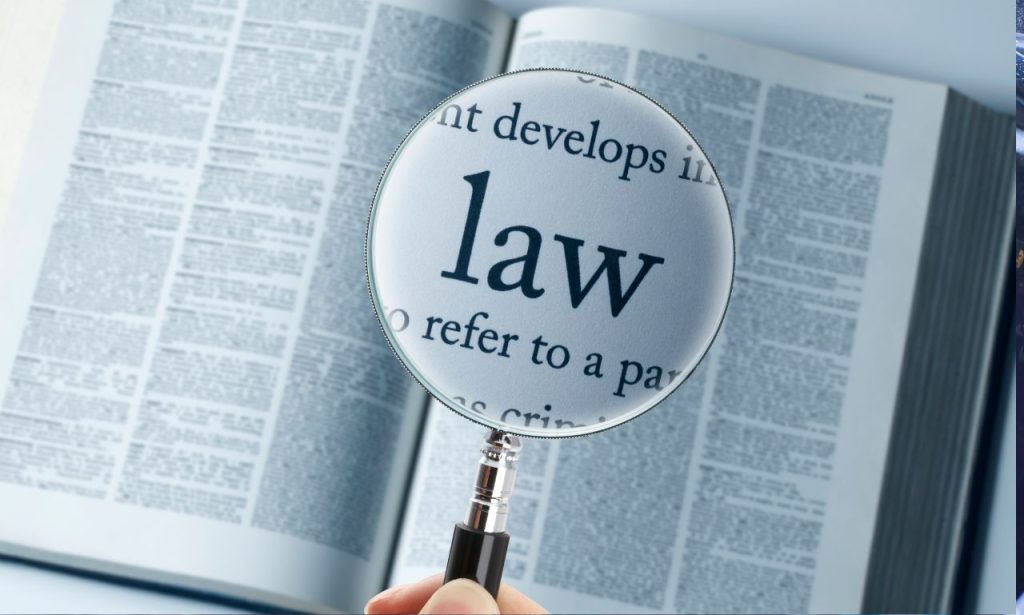A party drug or a legal nightmare? Ecstasy, or MDMA, is a substance that exists in a strange and highly regulated world. The laws surrounding it can be confusing, especially given the mixture of federal, state, and international regulations. Let’s dive into what laws are for ecstasy, how they differ across states, and what you need to know if you ever find yourself in trouble for possession.
Definition of Ecstasy (MDMA)
Before getting into the legal aspects, it’s important to understand what ecstasy really is. MDMA, commonly known as ecstasy, is a synthetic drug that changes mood and perception. It’s loved at raves and parties for its euphoric effects, heightened sensations, and sense of connectedness.
- Street Names: Molly, E, X, Love Drug, Happy Pill.
- Form: Pills, crystalline powder, sometimes mixed with other substances.
- Effects: Increased energy, emotional warmth, altered sensory perception, blurred vision, rapid heartbeat.
- Risks: It can cause potential long-term harm, including memory impairments, rapid dehydration, hyperthermia, and even life-threatening consequences.
- Medical Use: While still largely illegal, MDMA has gained interest for use under medical supervision in clinical studies for PTSD, often by groups like the Multidisciplinary Association for Psychedelic Studies.
Legal Classification of Ecstasy
Federal Drug Schedule Classification

Ecstasy falls under Schedule I of the Controlled Substances Act, which means:
- High potential for abuse.
- No accepted medical use under federal law.
- Severe criminal penalties.
The Drug Enforcement Agency (DEA) classifies it alongside other dangerous drugs like heroin and LSD, making it one of the substances deemed highly risky with little to no recognized medical utility in the United States. Understanding what laws are for ecstasy at the federal level is crucial to grasping the severity of the potential legal consequences.
Federal Laws Regarding Ecstasy
- Illegal Possession: Possessing any amount of ecstasy, no matter how small, is a federal crime. There’s no legal distinction between recreational drugs like ecstasy and more “dangerous drugs” under federal law.
- Simple Possession: This can lead to felony charges with a term of imprisonment of up to one year for first-time offenders.
- Distribution and Manufacturing: Engaging in the manufacture, sale, or distribution of ecstasy can lead to life imprisonment and heavy fines, especially when involving large quantities (in the realm of several grams of ecstasy).
State-Specific Regulations
Laws involving ecstasy can vary significantly by state. Some states have stricter penalties, while others may offer rehabilitation or diversion programs for first-time users. It is crucial to understand what laws are for ecstasy in your specific state to be aware of the possible consequences.
Possession Laws
- Constructive Possession vs. Actual Possession: If the ecstasy is found on your person, you have “actual possession.” If it’s in your car or home and you know about it, it’s termed “constructive possession.” Both types carry severe penalties.
- Penalties for Possession: Even small amounts can lead to jail time, probation, hefty fines, or a combination of all three. Penalties are often harsher if there’s evidence of intent to distribute.
Penalties for Possession
The penalties for possession of ecstasy can be harsh depending on the circumstances:
- First-Time Offenders: For first-time offenders, possession of a small quantity of ecstasy may lead to a simple possession charge, which can include probation, community service, and fines.
- Repeat Offenders: Penalties for repeat offenders tend to escalate quickly, leading to longer jail time and higher fines.
- Intent to Distribute: If found with larger quantities, authorities may pursue “Possession With Intent” charges, increasing penalties substantially. These charges usually imply involvement in trafficking or large-scale distribution.
Penalties for Ecstasy-Related Offenses
Possession Penalties
- Simple Possession: Generally, simple possession charges for ecstasy can result in county jail time, fines, or probation, depending on jurisdiction.
- Felony Punishable: Many states classify possession of ecstasy as a felony punishable by varying lengths of imprisonment, usually starting at a few months and extending to multiple years for repeat offenders.
- Charges for Possession with Intent: If found with larger quantities, authorities may pursue “Possession With Intent” charges, which implies you planned to sell or distribute it, significantly increasing the potential penalties.
Distribution and Manufacturing Penalties
- Felony Charges: Involvement in the manufacturing, sale, or distribution of ecstasy is classified as a serious felony. It can result in life imprisonment, depending on the quantity involved and previous convictions.
- Penalty Units and Criminal Penalties: Fines are often determined using “penalty units,” a structured way to assign financial consequences based on the nature and severity of the crime.
Challenging Ecstasy Charges
Being charged with an ecstasy-related offense is a serious situation, but not without options. Understanding your rights and potential defenses could make a significant difference when faced with what laws are for ecstasy.
Legal Defense Options
- Lack of Knowledge: The “I didn’t know it was there” defense can be effective in some constructive possession cases, especially if the prosecution can’t prove you had knowledge of the illegal substance.
- Fourth Amendment Violations: If your rights were violated during a search, such as lacking a valid warrant, your criminal defense lawyer might be able to get evidence thrown out.
- Challenging the Chain of Custody: If the chain of custody for the evidence is incomplete or mishandled, it could create reasonable doubt.
- Medical Supervision Defense: Though less common, there may be defense strategies involving pilot studies or medical uses under preliminary evidence for treatment, though these are rarely accepted by courts.
Diversion Programs and Alternatives
Some jurisdictions offer diversion programs or alternative sentences for first-time offenders:
- Rehabilitation Programs: Individuals may be sent to rehab instead of jail, providing an opportunity to address substance issues.
- Drug Courts: Specialized courts focused on treatment rather than punishment. These courts aim at helping offenders with rehabilitation instead of incarceration.
- Community Service: In some instances, community service may be an option instead of a custodial sentence, allowing individuals to serve the community as a way to mitigate their charges.
State Comparisons of Ecstasy Laws

Understanding what laws are for ecstasy across different states can help you get an idea of how varied the penalties can be.
Ecstasy Laws in New Jersey
- Strict Enforcement: New Jersey has a strict stance on ecstasy, treating it as a Schedule I drug and imposing hefty penalties, even for simple possession.
- Felony Punishable: Possessing even a small quantity of ecstasy is a felony that could lead to years in prison.
- Distribution Penalties: Selling or distributing ecstasy can lead to severe penalties, including long-term imprisonment.
Ecstasy Laws in Illinois
- Treatment Diversion: Illinois offers drug treatment programs for first-time offenders, especially when it comes to ecstasy possession. These programs may help avoid jail time but are strictly monitored.
- Felony and Fines: More than five pills can elevate the charge to a felony, with punishments ranging from probation to prison.
- Alternative Programs: Diversion programs may be available for those who qualify, focusing on treatment rather than incarceration.
Ecstasy Laws in Colorado
- More Lenient Approach: Colorado’s drug laws reflect a more progressive stance. While still a controlled substance, first-time users may receive probation and access to drug rehabilitation.
- Possession Charges: Still a serious offense, but the penalties might include diversion programs, especially for personal-use amounts.
- Community-Based Rehabilitation: Colorado emphasizes rehabilitation, providing access to treatment programs in place of traditional penalties.
Societal Attitudes Towards Ecstasy
- Changing Perceptions: Once exclusively seen as a dangerous drug, there is growing public and medical interest in ecstasy’s potential therapeutic uses.
- Recreational vs. Medical: Society’s perspective is split—while some celebrate ecstasy as a party drug for its effects, others recognize its dangers, especially among adolescent users and heavy users.
- Potential for Abuse: The recreational use of ecstasy, especially at events like music festivals and house parties, leads to a growing concern about its potential for abuse.
Fourth Amendment Rights and Drug Searches
Unlawful Searches and Seizures
Understanding your rights under the Fourth Amendment is crucial if you’re ever involved in a drug offense:
- Warrantless Searches: Authorities require a warrant for most searches, and evidence seized unlawfully may not be admissible in court. Knowing what laws are for ecstasy and how they relate to searches can be pivotal in defending yourself.
- Exceptions to the Warrant Rule: However, there are many exceptions, such as searches conducted during a lawful arrest, which could provide evidence against you in an ecstasy drug charge.
Importance of Legal Representation for Ecstasy Charges
Finding an Experienced Attorney
- Criminal Defense Lawyer: An experienced drug defense lawyer can make all the difference in cases involving criminal possession of ecstasy.
- Experienced Legal Representation: Finding a lawyer who specializes in drug laws and has experience handling ecstasy charges is crucial to building a strong defense.
Understanding Your Rights and Options

A good defense lawyer will guide you through:
- What to Expect in Court: A rundown of charges, the potential penalties, and possible outcomes. Understanding what laws are for ecstasy can help you be prepared.
- Negotiating Lesser Charges: Sometimes, a lawyer can work out an agreement for reduced charges or penalties.
- Mitigating Factors: The circumstances of the arrest, such as being a first-time offender, may lead to reduced sentencing or alternative programs instead of jail time.
Conclusion
Ecstasy laws are far-reaching and impactful. From federal classifications to state-specific nuances, understanding what laws are for ecstasy is crucial if you ever find yourself in legal trouble. The legal landscape is ever-evolving, and knowing your rights can mean the difference between facing the maximum penalties or walking away with your life still on track. Remember, legal representation is your best weapon when facing ecstasy charges. Don’t hesitate to seek help and know your rights to ensure the best possible outcome.
ALSO READ: What Happens If You Are Caught at School With Meth?
FAQs
Simple possession means you had a small quantity for personal use. Possession with intent involves a larger quantity and can imply you planned to sell it.
Yes, but it often depends on the circumstances of the case and the quality of your legal defense.
No, ecstasy is illegal across all states under federal law, but some jurisdictions may have specific programs for rehabilitation.
Yes, particularly in cases involving large quantities and distribution or manufacturing charges.





